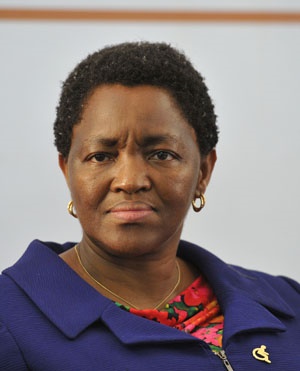
In April 2011, the state’s news agency, the Government Communication and Information System (GCIS), published its social-media guidelines.
The stated purpose of these guidelines was to create awareness across government about the opportunities presented in using social media as part of government communications.
The guidelines also served as a reference point for all government agencies and staff on how to manage risks associated with the use of this technology.
They established social-media principles for state employees, setting out how to disseminate official government communications.
Most importantly, conduct rules were formulated for employees using social media privately and in their personal capacity – especially when their government identity and affiliation was “identified, known or presumed”.
In essence, the guidelines served to regulate the behaviour of government employees with regard to how they communicated via social media in their official and personal capacities.
The most striking injunction of these rules of engagement is the one that requires government staff to be “cordial, honest and professional at all times”.
This week, this very instruction was put to the test by the online rantings of Lumka Oliphant, the spokesperson for Social Development Minister Bathabile Dlamini.
Enraged by reports alleging that Dlamini had been drunk at an ANC event, Oliphant took to her Facebook page to defend her boss. She unleashed a frenzy of vulgar insults in her rebuke of her principal’s accusers.
In a bid to “set the record straight”, as she put it, Oliphant threw any semblance of professionalism aside and told all and sundry where to get off in a series of unprintable profanities.
Under normal circumstances, a government agency such as the GCIS – charged with managing the state’s communication protocols – would have been the first to react by calling to order the official concerned.
It would have been within its rights to do so, given that Oliphant’s vitriolic tirade did not only violate government’s social media injunctions, but also went a long way towards damaging its reputation.
Yet, this dastardly act appears to be sanctioned by the very leaders who are supposed to condemn it, making the situation even more deplorable.
How does one explain the deafening silence of the GCIS in the face of such a glaring violation of its communications protocols?
For what purpose, and for whom, was this social-media policy designed, if not to keep in line government employees and communicators whose conduct serves to tarnish the image of the state?
Or, is social-media policy just another nice-to-have addition to this flashy government’s ineffectual procedural code?
It could be that the GCIS has no leg to stand on because the same policy contains an unfortunate disclaimer, which reads:
“Every government department or agency has different communication, information technology, information management structures and approval processes.
"This reality presents a challenge for these guidelines to specify a common departmental approval and permission process for social-media applications across whole-of-government.”
This is an unfortunate reality that the GCIS has chosen for itself. In so doing, it has relinquished its role of managing an integrated government communication system.
Why does the state need a central communications agency if departments and entities are still free to determine their own rules and processes, often in direct contrast to those of the GCIS?
What is the value of a GCIS-determined policy, if it can be ignored at will by its own government communicators?
That no word of condemnation has been uttered by Dlamini, the subject of such obscenities, nor any of her colleagues in positions of leadership, is appalling.
The ANC Women’s League, over which Dlamini presides, has also remained staunchly silent on the matter. This calls into question its levels of professionalism and decorum.
If the GCIS is to assume its strategic role in government communications, it should start implementing its policies across the board and change those which have proven to be too soft.
The code of ethics governing the department of public service and administration places an added burden on public service employees to sustain, build and defend the reputation of government.
In this context, the role of the GCIS is to safeguard and enhance that image through a credible and professional communications machinery and programme.
Equally, the errant behaviour of some journalists demands censure. Publishing unverified information and libellous lies about people destroys their image and harms their families.
A call must be made to media oversight body the Press Council Ombudsman to punish unsubstantiated labelling and bad reporting.
It is interesting to note that not even advertising creatives, such as those at chicken brand Nando’s – famous for releasing clever one-liners poking fun at current affairs issues of the day – have commented on Oliphant’s social-media gaffe. This brand was quick to react when former government communicator McIntosh Polela fell foul of social-media etiquette.
In 2012, Polela, then the senior Hawks spokesperson, made headlines after tweeting a rape joke about Molemo “Jub Jub” Maarohanye, after he was sentenced to jail with his co-accused, Themba Tshabalala, for causing the death of four schoolchildren and wounding two others while drag racing in a street in Soweto in March 2010.
“Next time you’re thinking about tweeting, do yourself [and your followers] a favour and come to Nando’s instead. Unlike your jokes, our flame-grilled peri-peri chicken is always tasteful,” read the Nando’s advert.
Polela was fired for his tweet and later apologised profusely for having posted it. We await a similar apology from Oliphant.
Scott is a former government communicator. He runs an independent media and communications agency
TALK TO US
What action, if any, do you think should be taken against Lumka Oliphant?
SMS us on 35697 using the keyword GCIS and tell us what you think. Please include your name and province. SMSes cost R1.50




 Publications
Publications
 Partners
Partners























